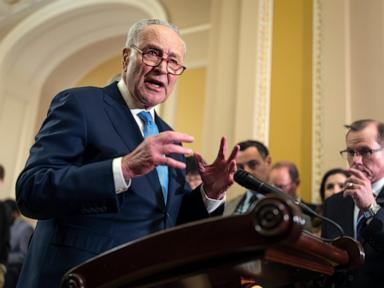Integrating Russia into the Western security framework is key to long-term stability

Integrating Russia into a Western security framework may sound almost treacherous as the war in Ukraine rages on. After three years of brutal conflict, the notion of engaging with Moscow, let alone incorporating it into a broader European security structure, is anathema to many in the West.
But security is built on pragmatism, not emotions. If the goal is to prevent future wars and ensure long-term stability, then difficult, even unpalatable, discussions must take place. The best time to negotiate with Russia was three years ago. The next best time is today.
The planned U.S.-Russia negotiations in Saudi Arabia, initiated by President Trump, are likely to deliver an outcome that could have been reached before February 2022: a neutral Ukraine and an implicit understanding that it will not join NATO. Any deal now will likely involve Ukraine conceding territories that Russia has seized.
When it comes to Russia’s role in the broader Western security order, the longer the West delays a dialogue with Russia, the higher the chances of another conflict.
Of course, Russia’s actions — especially its full-scale invasion of Ukraine — have severely undermined trust. The annexation of Crimea in 2014 and Moscow’s open contempt for Ukraine’s sovereignty mean that any reintegration into a Western security framework must come with strict conditions.
However, an exclusively adversarial approach — endless sanctions, military deterrence and strategic containment — increases the likelihood of future conflicts. The challenge is finding a middle ground between deterrence and engagement.
Rather than leaving Russia indefinitely outside the Western security order, a new framework should be designed that prevents future conflicts while upholding international norms.
For instance, a structured NATO-Russia Council could serve as a forum for military transparency, crisis prevention and conflict resolution. Under strict conditions, Russia and NATO could resume dialogue on military doctrines and risk reduction. Additional measures could include military hotlines, force reductions near borders and transparency agreements on troop movements.
None of this would grant Russia veto power over NATO’s decisions, but it would help manage tensions and avoid unnecessary escalation.
Additionally, discussions can explore neutral security zones, including the possibility of Ukraine adopting a permanently neutral status. This would need to be accompanied by demilitarized zones with strict international monitoring and verification mechanisms to prevent violations. Similar agreements could be considered for other flashpoints, including Georgia, where Russia has historically exerted influence.
A gradual economic reopening could also be on the table — under strict conditions. If Russia ends its aggressive policies and abides by international norms, limited reintegration into European energy markets could help stabilize global energy supplies. Conditional agreements on oil and gas exports could ensure that energy remains a tool for economic cooperation rather than a weapon of coercion.
A post-war Western security architecture should involve Russia under a new paradigm. This framework must ensure that the Kremlin cannot dictate terms. Instead, a structured approach — reminiscent of Cold War-era security agreements — should be pursued, balancing deterrence with engagement.
Skepticism toward such an approach is understandable, especially from Eastern European states, which bear the brunt of Russian hostility. Ukraine, in particular, will vehemently oppose any Western-led security arrangement that gives Russia even the slightest perception of influence over European security matters.
Yet, the failure to engage Russia diplomatically before 2022 contributed to the Ukraine war. It was avoidable. Now, the war will likely end within the next year, but unless a broader dialogue takes place about Russia’s role in European security, future conflicts may erupt elsewhere. Even if full-scale war is avoided, hybrid warfare, including cyberattacks and economic coercion, will continue.
Another reason to explore this integration is its potential to weaken Russia-China ties. The growing strategic alignment between Moscow and Beijing has increasingly posed challenges for the West. By isolating Russia entirely, the West inadvertently pushes it deeper into China’s orbit, strengthening a bloc that is harder to confront.
Engaging Russia within a Western security framework, even under stringent conditions, could drive a wedge between Moscow and Beijing. Dealing with Russia and China separately is far more manageable than facing them as a united front.
The Cold War offers a valuable precedent. Even at the height of U.S.-Soviet tensions, diplomatic channels remained open, and arms control agreements — such as the Strategic Arms Limitation Treaty, the Strategic Arms Reduction Treaty and the Intermediate-Range Nuclear Forces Treaty — helped manage competition. A similar approach can be explored today. The goal is not to embrace Russia as an ally but to ensure that its place in the security order prevents further destabilization.
A comprehensive security architecture — built on deterrence, conditional engagement and strict compliance with international norms — offers a pathway toward stability. The alternative is endless confrontation, with future crises waiting to erupt.
The West must make a difficult but necessary choice: to work towards a security order that includes, rather than isolates, Russia.
Alexander Clackson is the founder of the Global Political Research Center think tank in London, and a researcher on Russia, which he has covered for the past decade. He is currently conducting research on the political views of ethnic minorities in Russia.
-

Vladimir Putin prepares for return of western companies to Russia
President orders cabinet to give domestic producers preferential treatment as payback for sanctionsFinancial Times - 2h -

Guerrero plans to become free agent after season, fails to reach long-term deal with Blue Jays
Vladimir Guerrero Jr. plans to become a free agent after the season following the passing of his deadline to reach a long-term agreement with the Toronto Blue JaysABC News - 3d -

Senate Republicans approve budget framework, pushing past Democratic objections
Republican senators pushed a $340 billion budget framework to passage over Democratic objections after a nearly all-night voteABC News - 7h -
5 pivotal questions (and predictions) for key NFC teams
Fantasy football analyst Matt Harmon puts the spotlight on five NFC teams facing big questions this offseason.Yahoo Sports - 2d -
5 pivotal questions (and predictions) for key AFC teams
Fantasy football analyst Matt Harmon puts the spotlight on five AFC teams facing big questions this offseason.Yahoo Sports - 2h -

Is Russia Open for Business — and at What Cost?
Investors seem open to the prospect of peace talks, but Western companies face a dilemma just three years after many retreated from the country.The New York Times - 2d -

Ukraine or Russia: Whose Side Is Trump On?
Nick asks former UK foreign secretary Jeremy Hunt.BBC News - 1d -

4 Key Policies to Lead American Renewal Through Entrepreneurship
It’s Entrepreneurship Week. Here’s how the U.S. can do better to support the innovators who strengthen local and regional economies.Inc. - 1d -
What to know about the key laws being invoked in Trump legal challenges
Many of the dozens of lawsuits challenging the Trump administration's actions hinge on alleged violations of decades-old federal laws.CBS News - 6h -

5 Key Ways Bad Leaders Expose Themselves When Under Pressure
Watch for these warning signs of bad leadership under pressure.Inc. - 7h
More from The Hill
-

Pepperdine University says Mindy Kaling's new Netflix series 'misappropriated' its basketball team
Pepperdine University has filed a lawsuit against Netflix and Warner Bros. Discovery over Mindy Kaling’s upcoming show "Running Point,” alleging trademark infringement regarding its basketball ...The Hill - 16m -

Hamas’s failure to return Israeli mother’s body strains ceasefire
A tenuous ceasefire between Israel and Hamas has been strained by outrage over Hamas’s alleged transfer of an unknown body to Israel in the place of Shiri Bibas, the Israeli mother kidnapped and ...The Hill - 19m -

Texas AG adds gender screening request to NCAA lawsuit
Texas Attorney General Ken Paxton asked a judge on Thursday to require the NCAA to start gender testing for athletes who compete in women’s sports. The request for a temporary injunction adds a ...The Hill - 21m -

USAID aid freeze triggers health care crisis in Africa
USAID's 90-day freeze on all services has resulted in a significant loss of trust, critical health care, food aid, and medical supplies, causing life-threatening consequences for Malawian patients, ...The Hill - 26m -

US Marshals Service deputizes Musk's security team: reports
The U.S. Marshals Service has deputized some of tech billionaire Elon Musk's private security detail, giving them specific rights and protections of federal law enforcement agents, multiple outlets ...The Hill - 29m
More in Politics
-

Pepperdine University says Mindy Kaling's new Netflix series 'misappropriated' its basketball team
Pepperdine University has filed a lawsuit against Netflix and Warner Bros. Discovery over Mindy Kaling’s upcoming show "Running Point,” alleging trademark infringement regarding its basketball ...The Hill - 16m -

Hamas’s failure to return Israeli mother’s body strains ceasefire
A tenuous ceasefire between Israel and Hamas has been strained by outrage over Hamas’s alleged transfer of an unknown body to Israel in the place of Shiri Bibas, the Israeli mother kidnapped and ...The Hill - 19m -

Texas AG adds gender screening request to NCAA lawsuit
Texas Attorney General Ken Paxton asked a judge on Thursday to require the NCAA to start gender testing for athletes who compete in women’s sports. The request for a temporary injunction adds a ...The Hill - 21m -

USAID aid freeze triggers health care crisis in Africa
USAID's 90-day freeze on all services has resulted in a significant loss of trust, critical health care, food aid, and medical supplies, causing life-threatening consequences for Malawian patients, ...The Hill - 26m -

US Marshals Service deputizes Musk's security team: reports
The U.S. Marshals Service has deputized some of tech billionaire Elon Musk's private security detail, giving them specific rights and protections of federal law enforcement agents, multiple outlets ...The Hill - 29m